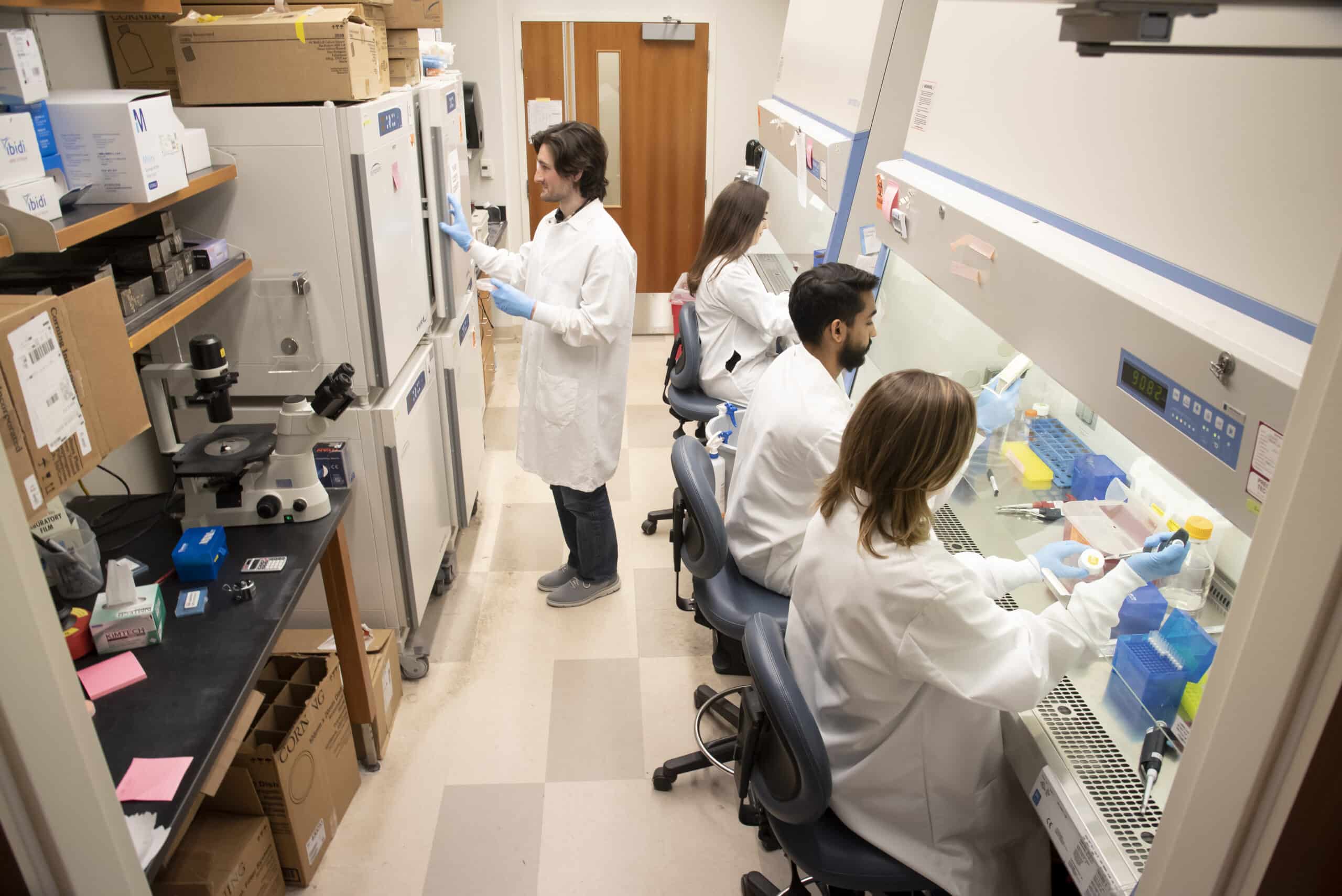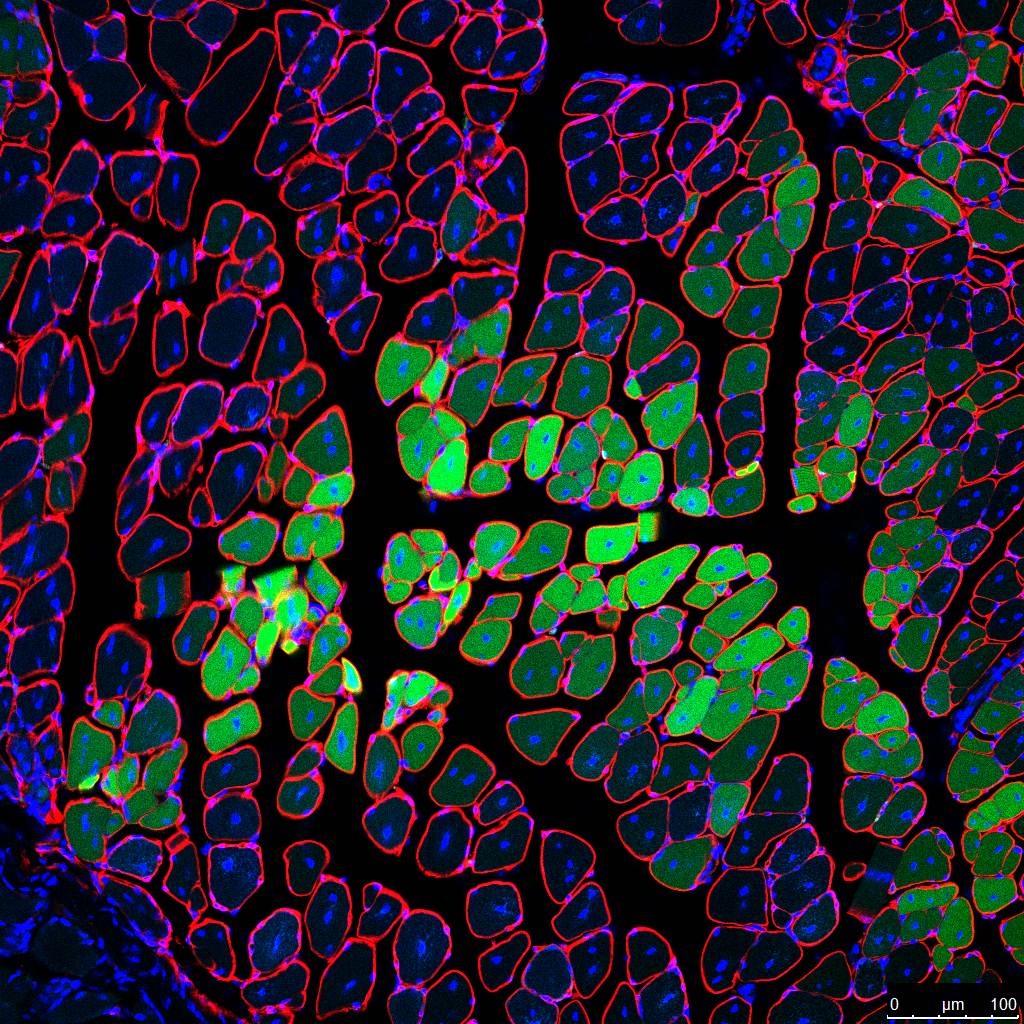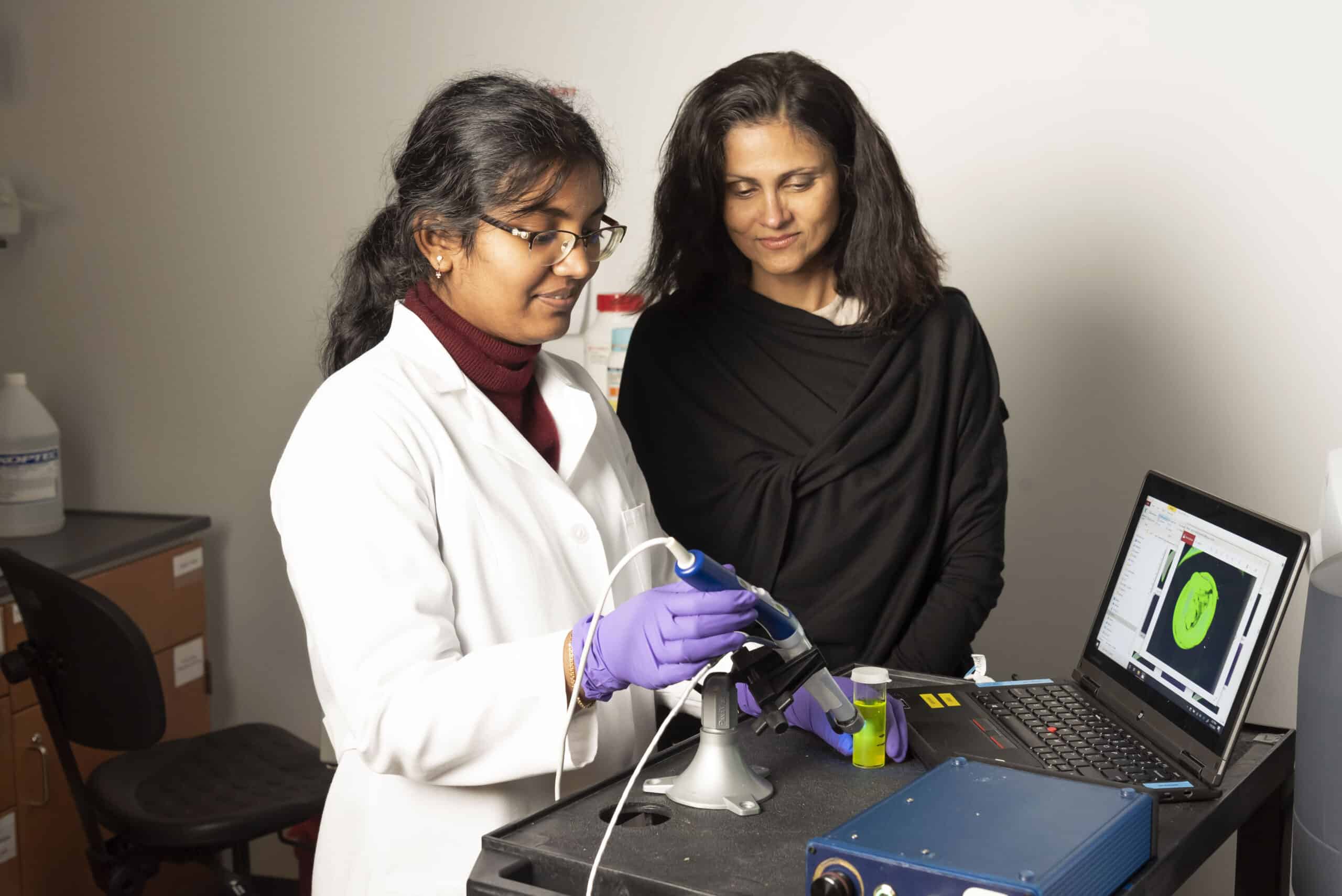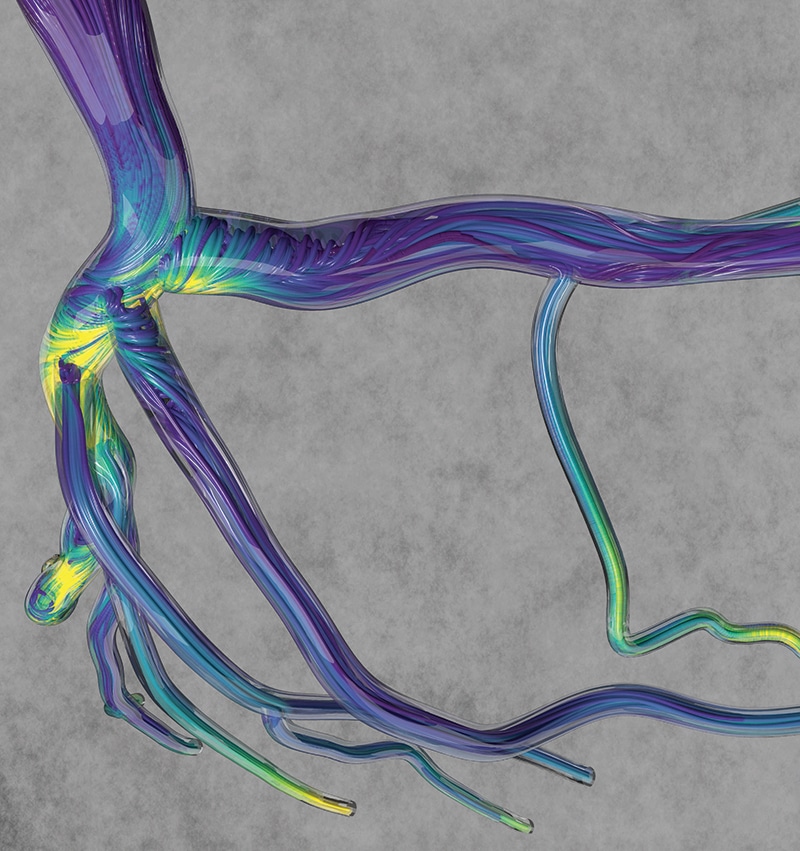Major Research Centers
Duke BME is deeply engaged in improving human and population health. A hallmark of our approach is extensive collaborations with leading physicians and scientists at Duke’s School of Medicine.

Center for Advanced Genomic Technologies (CAGT)
CAGT is a team of world-leading engineers, scientists and physicians who are using innovations like CRISPR-based genome editing to unravel disease biology and discover new drug targets.

Center for Biomolecular & Tissue Engineering (CBTE)
CBTE emphasizes research, education and interactions with industry—applying principles and experimental engineering methods to develop solutions in protein engineering, cellular engineering and tissue engineering.

Center for Global Women’s Health Technologies (GWHT)
GWHT aspires to make cancer diagnosis, prevention and treatment more accessible and effective for women worldwide. By placing women at the center of healthcare solutions, the center leverages engineering technology to create sustainable ecosystems of change.

Fitzpatrick Institute for Photonics
FIP trains the commercial, technical and academic leaders of next-generation broadband technologies, pioneers photonics as an information science and creates new approaches to industrial, governmental and interacademy collaboration. Research themes include quantum optics, opto-electronics, information spaces and biophotonics.

The Center for Quantitative Biodesign
CQB is a community of research labs working together to promote research excellence and scholarship at the nexus of quantitative biology, synthetic biology and machine learning.

Center for Computation & Digital Health Innovation
This center is poised to transform the future of health care by leveraging cutting-edge technologies to tackle some of the most urgent health challenges. By harnessing the power of wearable sensors, high performance computing, and extended reality, CCDH aims to pioneer new methods to find, track, and treat health conditions in real-time, ensuring timely and precise interventions.
